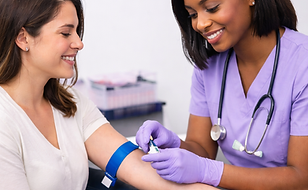
Welcome to Insync Labs & Solutions
We are a trusted provider of mobile and in-office lab testing services for individuals, families, and employers. From drug testing to DNA and wellness labs, we deliver accurate results with professionalism and care.
Welcome to Insync Labs & Solutions
We are a trusted provider of mobile and in-office lab testing services for individuals, families, and employers. From drug testing to DNA and wellness labs, we deliver accurate results with professionalism and care.

Mobile Lab Testing
Convenient lab draws and collections at your home, office, or clinic.

Drug & Alcohol Testing
DOT & Non-DOT testing, rapid panels, and employer screenings.

DNA Testing
Legal & non-legal DNA testing for paternity, maternity, siblings, and more.
We’re knowledgeable about making testing easier
Insync Labs & Solutions provides hassle-free mobile and in-office solutions designed around your schedule.
We combine accuracy, security, and professionalism to give you a seamless testing experience—no long waits, no complications.
Mobile & in-office convenience for fast, stress-free testing
Certified and compliant collectors
Quick turnaround times with accurate, reliable results
Solutions for both individuals and employers
Supportive client experience from start to finish
Fast & Secure
Service
We deliver reliable testing with strict privacy, ensuring every sample is handled safely and professionally.
Client-Focused Approach
Your convenience matters. Whether at your home, workplace, or event, we bring quality testing directly to you.
Accuracy You Can Trust
Every test is collected and processed using proven protocols and trusted lab partnerships to ensure dependable, accurate results.
Flexible Service Options
We offer mobile and in-office testing designed to fit your schedule, making the process simple and stress-free wherever you are.
2145+
Tests Completed
145
Satisfied Clients
215
Business Partners
54
Awards / Certifications
Insights to Help You Stay Informed
We are a trusted provider of mobile and in-office lab testing services for individuals, families, and employers. From drug testing to DNA and wellness labs, we deliver accurate results with professionalism and care.

